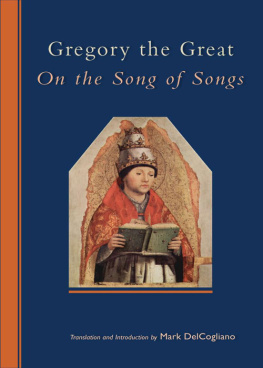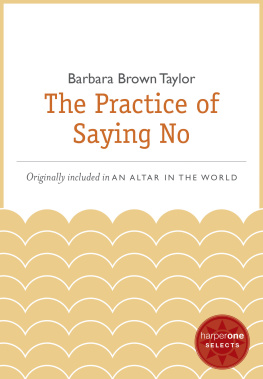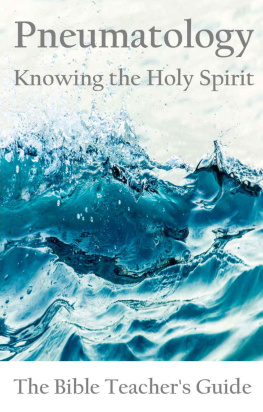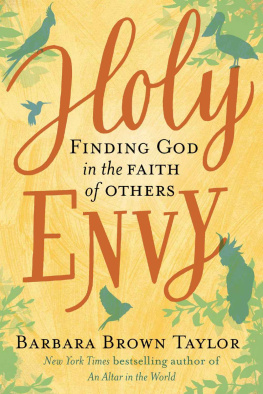Brown Gregory - Barbara Kopple: interviews
Here you can read online Brown Gregory - Barbara Kopple: interviews full text of the book (entire story) in english for free. Download pdf and epub, get meaning, cover and reviews about this ebook. City: Jackson, year: 2015, publisher: University Press of Mississippi, genre: Non-fiction. Description of the work, (preface) as well as reviews are available. Best literature library LitArk.com created for fans of good reading and offers a wide selection of genres:
Romance novel
Science fiction
Adventure
Detective
Science
History
Home and family
Prose
Art
Politics
Computer
Non-fiction
Religion
Business
Children
Humor
Choose a favorite category and find really read worthwhile books. Enjoy immersion in the world of imagination, feel the emotions of the characters or learn something new for yourself, make an fascinating discovery.

- Book:Barbara Kopple: interviews
- Author:
- Publisher:University Press of Mississippi
- Genre:
- Year:2015
- City:Jackson
- Rating:4 / 5
- Favourites:Add to favourites
- Your mark:
- 80
- 1
- 2
- 3
- 4
- 5
Barbara Kopple: interviews: summary, description and annotation
We offer to read an annotation, description, summary or preface (depends on what the author of the book "Barbara Kopple: interviews" wrote himself). If you haven't found the necessary information about the book — write in the comments, we will try to find it.
Barbara Kopple: interviews — read online for free the complete book (whole text) full work
Below is the text of the book, divided by pages. System saving the place of the last page read, allows you to conveniently read the book "Barbara Kopple: interviews" online for free, without having to search again every time where you left off. Put a bookmark, and you can go to the page where you finished reading at any time.
Font size:
Interval:
Bookmark:
Barbara Kopple: Interviews
Conversations with Filmmakers Series
Gerald Peary, General Editor
Edited by Gregory Brown

www.upress.state.ms.us
The University Press of Mississippi is a member
of the Association of American University Presses.
Copyright 2015 by University Press of Mississippi
All rights reserved
Manufactured in the United States of America
First printing 2015
Library of Congress Cataloging-in-Publication Data
Kopple, Barbara.
Barbara Kopple : interviews / edited by Gregory Brown.
pages cm. (Conversations with filmmakers)
Includes bibligoraphical references and index.
Includes filmography.
ISBN 978-1-62846-212-8 (cloth : alk. paper) ISBN 978-1-62674-569-8 (ebook) 1. Kopple, BarbaraInterviews. 2. Motion picture producers and directors United StatesInterviews. I. Brown, Gregory, 1953 editor. II. Title.
PN1998.3.K6655A3 2015
791.4302'33092dc23
2015015802
British Library Cataloging-in-Publication Data available
Chuck Kleinhans / 1976
Gail Pellet / 1977
Gary Crowdus / 1977
Jan Aghed / 1977
Gary Crowdus and Richard Porton / 1991
L. A. Winokur / 1992
Harlan Jacobson / 1993
Lisa Lincoln / 1998
Michel Ciment / 1998
Gary Arnold / 1998
Bill Kirtz / 1999
Steve Chagollan / 2000
Jennifer M. Wood / 2001
Charles Gibson / 2002
Mary Sampson / 2002
Alison Sloane Gaylin / 2004
Katrina Onstad / 2005
Michael Lisi / 2005
Brian Brooks / 2006
Damon Smith / 2007
Michael Joshua Rowin / 2008
Barbara Kopple / 2008
Jacqueline Linge / 2009
Sara Vizcarrondo / 2010
Sophia Savage / 2011
Eleanor Barkhorn / 2011
David Fellerath / 2011
Rahul Chadha / 2011
Karen Kemmerle / 2013
The documentary filmmakers responsibilities can be daunting. Project research, fundraising, working with a crew, following characters, identifying story lines, crafting a final product with editors, promoting the filmthese are the nuts and bolts necessary to complete any project, successfully or not. Then consider a lifetime of responding to ever-changing technologies, economics, and distribution channels.
Add to the mix a producers values, worldview, sense of fairness, and objectivity and the enterprise becomes all the more complex. In the more than fifty years since Barbara Kopple made her first unedited documentary film as an undergraduate class research project, shes learned to balance these facets of the process toward a singular goal: to give as complete and riveting a view as possible of her subject.
Throughout a lauded career that included two Academy Awards for her most ambitious labor films, Kopple has made herself readily available to interviewers from many publications and countries. Many themes repeat themselves throughout the following interviews and those excerpted in this introduction.
Barbara Kopples early decisions about college would seem destined to lead her into a network of like-minded activists. Eager to see the world outside her privileged yet liberal upbringing in affluent Scarsdale, New York, in 1965 Kopple enrolled in Morris Harvey College (now known as the University of Charleston) in West Virginia. Here she got a taste of Appalachian mountain culture, but her focus quickly shifted to the burgeoning Vietnam War protests, as she transferred to Bostons Northeastern University. There, faced with producing a research paper for a clinical psychology class, Kopple incensed her professor by submitting a short movie about lobotomy patients she got permission to film at Medfield State Hospital. (She reports early on that shed read you could easily operate a camera by pressing a button.)
It was the connections she made upon her move to New Yorks New School of Social Research, however, that would dramatically affect her career. Taking a cinma-vrit film course, she met a classmate employed by Albert and David Maysles. Soon she was hired to do any and all odd jobs, working with assistant editor Barbara Jarvis, and helping with completion of the brothers film Salesman and then with Gimme Shelter, both now acknowledged as cinma-vrit classics. Assisting the Maysles led her to understand the value of listening to members of a production team.
The Maysles accepted input on their projects and in return staff members felt part of a community of creative teammates. For Winter Soldier, a film about Vietnam War vets opposed to the war, a collective produced the film, benefitting from donations collected by Jane Fonda and Donald Sutherland, who also mentored the group. From there, Kopple moved on to create her own company, Cabin Creek Films. Headlines in the newspapers inspired Kopples decision to embark on Harlan County, U.S.A.: a deadly West Virginia mine disaster, corruption in the United Mine Workers, and the murder of a reformist candidate for the unions presidency.
Not surprisingly, a great deal of interest has centered on her ability to raise funding, especially considering Kopples remarkable productivity (shes finished directing almost fifty films and television shows so far, to say nothing of commercial advertisements). She wisely notes that if you wait until you have all the money needed to make a film, you might never start. Despite ever-more capable and affordable equipment, filmmaking remains an expensive proposition, though much less so than in the heyday of 16-mm film. Yet Kopple is optimistic about prospects for young filmmakers, noting the greater popularity of the reality genre today and the potential for commissions for documentary work from television networks that may help obviate the need for some of the early risks she took.
During the three years of shooting on Harlan, Kopple would write more than a hundred fundraising and follow-up letters. With a contribution of ten thousand dollars from the American Film Institute, Kopple continued shooting footage and cut it into short movies she could show to potential donors. Completing an astonishing amount of research on foundations and what they would and would not support, Kopple discovered that actually meeting people who might write the check is one of the most important steps in the process. When foundations turned her down, shed ask why, show her footage, and ask for advice about who might help her.
It was an exhausting but necessary ordeal that diverted her attention from collecting the story. The grants would come in, but seldom for the amounts requested. She ignored a standard bit of advicenever invest your own money in a film; otherwise, she might never have seen the film through to completion. The decision carried consequences. At one point, she had as little as five dollars while living among the miners and was amazed at getting a Master Charge card, which replenished her stores and financed the effort for two months, though it would take her years to pay off the debt.
Such trials and tribulations might explain her reluctance to haggle over revenues from Harlan County, U.S.A.s distributor. In one 1980 interview, she reported giving the distributor 70 percent of all earnings of the film for fifteen years, and allowing the company to recoup costs for film prints and advertising. She did, however, insist on provisions for benefit and reduced-cost showings. Though it might seem a poor deal on the face of it considering Kopples prolonged period of poverty, it could also be seen as a savvy move by a relatively unknown director anxious to gain the publicity for her film an experienced distributor could provide.
Next pageFont size:
Interval:
Bookmark:
Similar books «Barbara Kopple: interviews»
Look at similar books to Barbara Kopple: interviews. We have selected literature similar in name and meaning in the hope of providing readers with more options to find new, interesting, not yet read works.
Discussion, reviews of the book Barbara Kopple: interviews and just readers' own opinions. Leave your comments, write what you think about the work, its meaning or the main characters. Specify what exactly you liked and what you didn't like, and why you think so.







